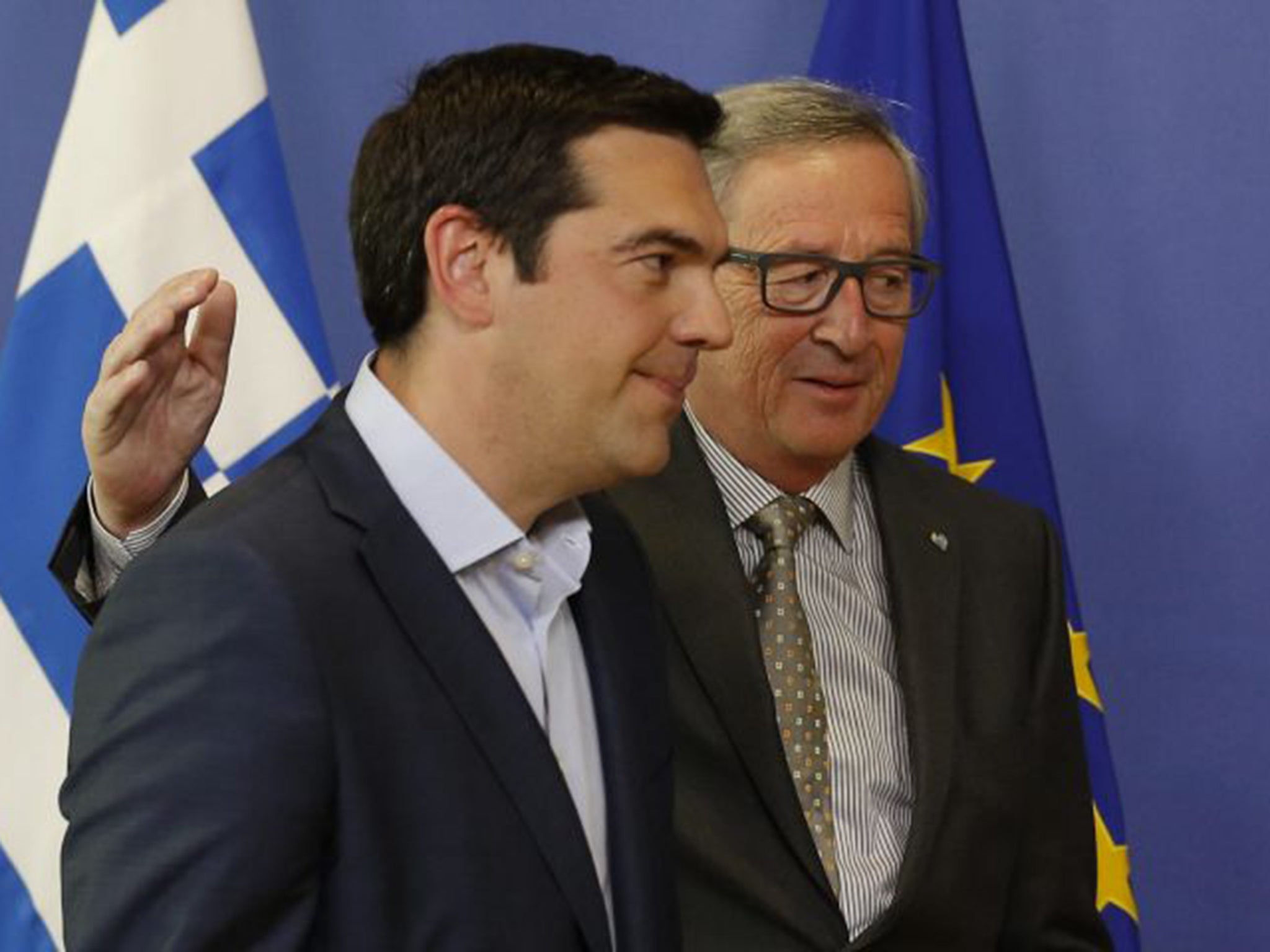Greece debt crisis: Syriza hardliners win delay in €300m loan repayments to IMF
Athens will bundle all four of its June payments together and pay the €1.5bn total by the end of the month

Your support helps us to tell the story
From reproductive rights to climate change to Big Tech, The Independent is on the ground when the story is developing. Whether it's investigating the financials of Elon Musk's pro-Trump PAC or producing our latest documentary, 'The A Word', which shines a light on the American women fighting for reproductive rights, we know how important it is to parse out the facts from the messaging.
At such a critical moment in US history, we need reporters on the ground. Your donation allows us to keep sending journalists to speak to both sides of the story.
The Independent is trusted by Americans across the entire political spectrum. And unlike many other quality news outlets, we choose not to lock Americans out of our reporting and analysis with paywalls. We believe quality journalism should be available to everyone, paid for by those who can afford it.
Your support makes all the difference.Greece has told the International Monetary Fund it will delay a debt repayment of €305m (£223m), due on Friday, in a move that buys time for the government to negotiate a deal with its creditors.
Athens will bundle all four of its June payments together and pay the €1.5bn total by 30 June, which is also the day on which its bailout deal with the EU and IMF runs out.
Athens’ move appeased Syriza party hardliners who have called for Greece to suspend payments in an effort to “blackmail” its creditors, but it was unclear whether it was motivated by a lack of cash or was an act of defiance.
According to an IMF statement, Greece was invoking a rule “intended to address the administrative difficulty of making multiple payments in a short period”.
It followed a vehement reaction to a set of proposals presented by European Commission President Jean Claude Juncker to Greek Prime Minister Alexis Tsipras, which Athens deemed “unacceptable”.
There was growing speculation in Greece that Mr Tsipras may be forced to call early elections as the hardliners within the leftist Syriza party are holding firmer than ever to their opposition to any deal that could compromise the party’s election pledges to reduce austerity.
Mr Tsipras and Mr Juncker failed to break the impasse of Greece’s unending debt crisis. The demands made by creditors for pension cuts and tax increases are widely considered impossible for Syriza to accept. Senior politicians have now joined the hardliners in saying they would oppose any proposal that would force-feed Greece more austerity measures.

The package of reforms drafted by European and IMF creditors that was offered to Mr Tsipras in return for cash are deemed unacceptable and just a continuation of the harsh measures Syriza had pledged to end.
After landing in Athens, Mr Tsipras held a meeting with the finance ministry team and said that “extreme proposals” would not be accepted by the Greek government. The structure of Syriza means Mr Tsipras would also have to convince his party’s parliamentary group and secretariat before striking a deal.
Theodoros Paraskevopoulos, a party member closely working with Syriza’s parliamentary group, explained that the party’s line is “very important” in influencing the Prime Minister. He added that some members could vote against the deal, though usually in decisions of “great significance” the party operates as a whole.
Speaking to The Independent, a party hardliner, Alekos Kalivis, said he believed that Greece had already given in sufficiently to the international creditors’ demands. “We’ve reached our limits. There is no further steps we can take. Their failed recipes can’t continue,” he said, referring to the creditors’ demands that include additional taxes and cuts in pensions.
The Syriza MP Andreas Barkas said that the EU’s offer smacked of more pain. “We can’t recognise austerity. We can’t chop wages and pensions any more. We don’t want a rupture with the Europeans but we want a mutually beneficial solution.”
A motion by the Syriza hardliners to pause repayments to the IMF was only barely rejected last month by the party central committee. Mr Paraskevopoulos said a solution would be for the government not to pay its instalments due to the IMF and European Central Bank. “Money is running out only if we have to pay the IMF and the ECB. We may say at some point that we will stop paying and continue negotiations,” he said over the phone.
Another Syriza member, Costas Zachariades, said: “We had already made significant step-backs with our proposals. Their offer is very harsh, extreme, unfair and with no prospect of recovery and growth.”
Join our commenting forum
Join thought-provoking conversations, follow other Independent readers and see their replies
Comments